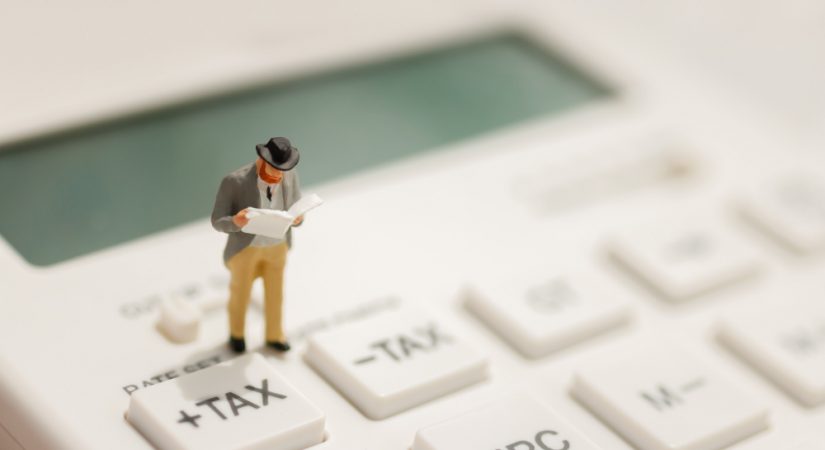Deadline of Real Property Tax in the Philippines 2022

Aside from the monthly mortgage, the first item you need to settle as a homeowner when the year begins is real property tax. The Real Property Tax is a local government tax collected on items such as land, buildings, improvements to land or buildings, and machinery. Property held by the Philippine government, charity institutions, churches, cooperatives, and those utilized in the delivery of water and electricity is exempt from this rule.
Settling your real estate tax early might provide you with substantial discount and keep you out of tax problems in 2022.
The local government where the properties are located has the authority to evaluate all taxable or exempt real property at its current and fair market value.
REAL PROPERTY TAX DEADLINE FOR 2022
There are two options for settling your real estate tax. You can pay it in full or in quarterly installments at the city or municipal treasurer’s office that is normally located at the city hall of the local government unit, as well as on the websites of various LGUs.
Those who want to pay in full must pay before January 31 of each year while for those who want to pay it quarterly, the deadlines are as follows:
First Quarter: On or before March 31
Second Quarter: On or before June 30
Third Quarter: On or before September 30
Fourth Quarter: On or before December 31
Valid identification card, a copy of the most recent tax declaration, and copies of the official receipt are required to complete the payment of the real estate tax. Bring a copy of the previous year’s tax declaration and official receipts from either the developer or the former owner of the property if you are a first-time payor. During the property handover, the old owner normally hands over certain documents to the new owner.
ONLINE REAL PROPERTY TAX PAYMENT
With the advancement of technology and the desire to avoid long queues, provide safe, fast and convenient transaction particularly in light of the current pandemic, it is now possible to pay real estate taxes online through virtual platforms that facilitate such transactions. Here is a list of online portals and government links in the Philippines where you can settle your property’s real estate tax:
To acquire access to these portals online, just create an account, sign in, search for your property’s tax declaration number, locate the payment button, and choose your preferred payment method, which is often bank transfer, Gcash, Paymaya, or credit card.
Here is a list of online portals, public domain and government links in the Philippines where you can do your payments for your real estate tax :
METRO MANILA
Caloocan: Caloocan City Web Portal
Marikina: City Government of Marikina Online Services
Makati: Makatizen Online Assessment and Payment Portal
Mandaluyong: Mandaluyong City Online Services
Manila: Go! Manila
Muntinlupa: Muntinlupa Online Real Property Payment System (MORPS)
Pasig: Pasig City’s Online Services
Paranaque: City Treasurer’s Office Online Portal
Quezon City: QC E-Services
San Juan: San Juan Local Government System
Taguig: Taguig Registry for Access and Citizen Engagement (TRACE)
Valenzuela: Valenzuela City Online Services
RIZAL
Antipolo, Rizal: Antipolo Online Services
NORTH LUZON
Baguio, Benguet: Baguio in My Pocket
CENTRAL LUZON
Angeles, Pampanga: City of Angeles
Marilao, Bulacan: eRPT Online Payment
SOUTH LUZON
Naga, Camarines Sur: Real Property Owner
Ligao, Albay: Realty Tax Online Billing
PALAWAN
Puerto Princesa, Palawan: Realty Tax Online Billing
VISAYAS
Kalibo, Aklan: Landbank Link.BizPortal
Cebu City: Online Tax Pay
Tagbilaran, Bohol: e-Payment
MINDANAO
Davao City, Davao del Sur: FilipinoPay
Cagayan de Oro, Misamis Oriental: Online Payment
Aside from paying real estate taxes, business permit, downloadable form and other online services can be also accessed through this city government website.
WHO IS RESPONSIBLE FOR PAYING REAL PROPERTY TAXES?
The individual or individuals who own or whose names are recorded in the titles and certificates of the property, or whomever owns it as of January 1, should pay the real estate tax.

WHAT IS THE REAL PROPERTY TAX RATE IN THE PHILIPPINES?
The real property tax rate in the Philippines is determined based on the property’s location. In Metro Manila, the rate is 2% of the assessed value while it is 1% in the provinces.
WHY PAY REAL PROPERTY TAXES EARLY?
Local Government Units often provide its residents early taxpayers savings of up to 20% of the yearly tax owed. Discount rates may also differ based on the municipality or city in which the property is situated.
In Quezon City payments made before January 31 for annual payments will receive a 20% discount, while quarterly payments will receive a 10% discount if made before the due dates, while in Antipolo, those who pay their real property tax before December 31, 2021 will avail a 20% discount, while those who pay on or before March 30, 2022 will receive a 10% discount. On the other hand in Baguio, early taxpayers receive a 20% discount on their real property dues, while those who pay in full between January and the end of March receive a 10% discount, and those who pay quarterly receive a 10% reduction on the amount of tax due if paid in full during the quarter.
WHAT HAPPENS IF YOU DON’T PAY PROPERTY TAX IN THE PHILIPPINES?
Late payments of the property tax are subject to penalties. The penalty is 2% interest per month on the unpaid sum, with a maximum penalty of 72 percent in three years.
If the real property tax is not paid, the local government unit concerned may impose administrative action, such as a levy on real property, or judicial action.
If you do not pay your property taxes for an extended length of time, the city or municipality may auction off your property. However, within one year of the date of sale, the owner of the delinquent real property, or a person with a legal interest, or a representative, shall have the opportunity to redeem the property by paying the delinquent tax to the local treasurer. These comprise the interest payable and selling fees from the date of delinquency to the date of sale, as well as a monthly interest rate of no more than 2% on the purchase price from the date of sale until the date of redemption.
WHY DO WE HAVE TO PAY REAL PROPERTY TAX IN THE PHILIPPINES?
The real property tax is one of the most significant sources of revenue for a local government unit since it is shared among the smaller local government units that make up the province or city. For provinces, 40% goes to the municipality, 25% to the village or barangay where the property is located, and the province keeps the remaining 35%. For city administrations, it is shared between the village (which receives one-third) and the city (retaining two-thirds). Local government units can use real property tax to fund their projects for infrastructure, health, education, and other purposes.




